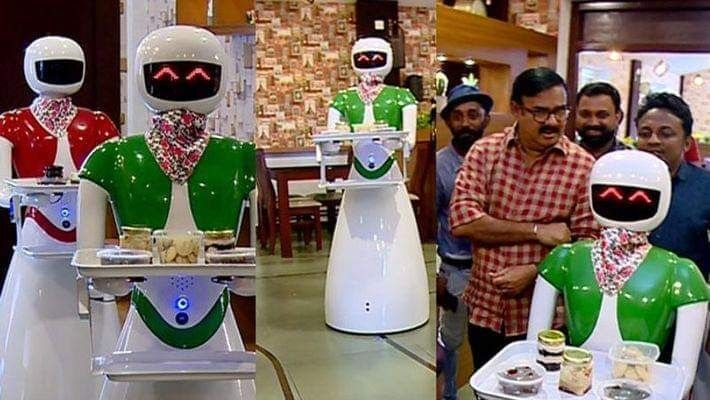

The future of robotics in the food industry holds significant promise, with advancements poised to revolutionize various aspects of food production, processing, and service.
Automated Food Production: Robotics will continue to automate and optimize food production processes, increasing efficiency, consistency, and safety. This includes ingredient mixing, dough kneading, portioning, and packaging in food manufacturing facilities.
Smart Kitchen Appliances: Future kitchens may feature robotic appliances and devices that assist with meal preparation, cooking, and cleanup. These could include robotic chefs capable of following recipes, autonomous cooking devices, and robotic dishwashers.
Food Delivery and Service Robots: Delivery robots are already used in urban areas to transport food orders from restaurants to customers’ homes or workplaces. Robotic servers and automated food delivery systems may become more common in restaurants.
Food Safety and Quality Control: Robots can enhance food safety and quality control measures by automating inspection processes. Robotic systems equipped with sensors and cameras can detect contaminants, ensure proper food handling practices, and identify product defects, helping prevent foodborne illnesses and maintain quality standards.
Customized Food Production: Advances in robotics and 3D printing technology enable customized food production tailored to individual preferences and dietary requirements.
Labour Shortage Mitigation: As labour shortages affect the food industry, robotics can fill critical gaps in workforce needs by performing repetitive or physically demanding tasks. Businesses can reallocate human resources to more value-added roles by automating routine functions.
Supply Chain Optimization: Robotics and automation can optimize various aspects of the food supply chain, including warehousing, inventory management, and logistics. Automated guided vehicles (AGVs) and robotic picking systems can streamline warehouse operations, reduce errors, and expedite order fulfilment processes.
Sustainable Food Production: Robotics can contribute to sustainable food production practices by optimizing resource usage, reducing food waste, and minimizing environmental impact. Precision farming techniques enabled by robotics can help conserve water, reduce chemical inputs, and mitigate soil erosion, fostering more sustainable agricultural practices.
Collaborative Robotics (Cobots): Collaborative robots designed to work alongside humans can enhance productivity and safety in food processing facilities. These cobots can assist with product assembly, packaging, and palletizing tasks while ensuring safe interaction with human workers.
Overall, the future of robotics in the food industry is characterized by innovation, efficiency, and improved outcomes across the entire food value chain, from farm to fork.